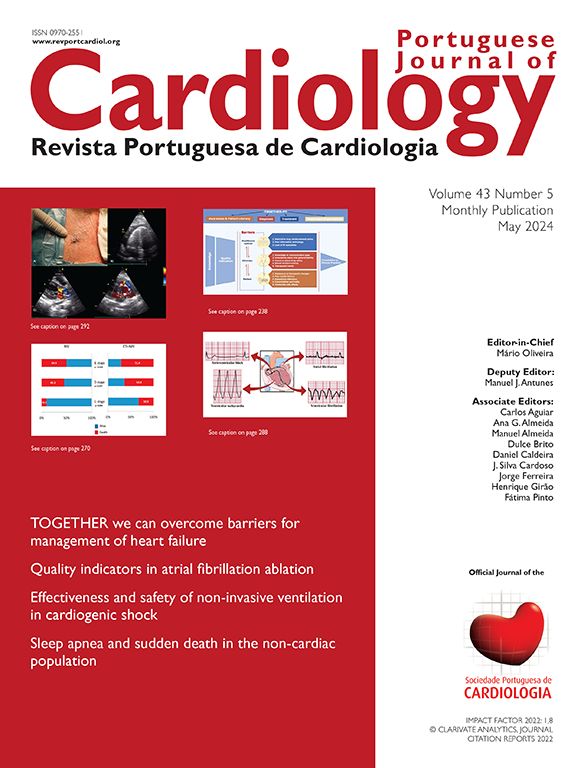“Not everything that is faced can be changed, but nothing can be changed until it is faced.”
James Baldwin
Compared to their male counterparts, women worldwide are under-represented in the field of cardiology, a tendency that is more marked in invasive subspecialties and leadership roles. In fact, like other medical specialties, cardiology has not been seen as attractive for women. However, the proportion of women as leading physicians in cardiology, in both senior clinical and academic positions, is lower than in other areas.1,2
What are the factors that hinder women from pursuing and advancing in cardiology?
Among the main barriers causing the imbalance with men and these career options are factors such as poor work-life balance and dual responsibility (work and household), family planning, experiences of gender-based discrimination, radiation exposure, lack of mentorship, lack of flexibility, on-call requirements and the training process in cardiology.3,4 Although these factors are well known, important questions remain unanswered and solutions to change this situation are lacking. Many surveys have been published over the years in various countries concerning gender differences and professional options in cardiology, but data are scarce from Portugal, a country in which cardiology is not currently among the top choices of medical specialties for young doctors.
In their study published in this issue of the Journal,5 Timóteo and colleagues conducted an online survey about perceptions of cardiology and professional preferences among the members of the Portuguese Society of Cardiology, of whom one third are women. The final sample included 219 completed responses (response rate of 18.2%); half were women, with decreasing proportions from younger to older age groups, in which men still predominate. Women are less often married and more frequently childless, particularly when working in an invasive area, such as electrophysiology or interventional cardiology, in which they account for only 16% of members working in these fields. The male/female distribution for non-invasive imaging is similar, while women predominate in the subspecialties of heart failure, cardiomyopathies, acute cardiac intensive care, pulmonary hypertension and adult congenital heart disease.
Regarding these professional preferences, men's perception is that women do not choose invasive areas due to family reasons, radiation concerns and working conditions, while from women's perspective, the main barriers are male dominance, lack of female role models, and restricted access. In general, most responders consider that in Portugal women have more difficulty in achieving leadership positions, a more frequent perception in women than in men. Interestingly, more women than men responding to the survey were head of a cardiology department, but this was not the case in other roles, with more women than men having no coordinating role. Although men are less interested in academic activities, and in general perform research less frequently, they more often publish as first or senior author, probably because more men in this country are head of cardiology departments.
Despite the relatively small sample and the over-representation of women's opinions, this study shows that professional preferences and gender differences in Portuguese cardiology are in line with previously published data about cardiologists’ perceptions, mainly in the US and in other European countries. Similarly, a recent analysis conducted in the German Cardiac Society shows that the increasing numbers of women in cardiology over the last 20 years have not translated into an increase in representation of women in leadership positions.6
Most women still perceive gender bias in cardiology, with slower advancement than their male peers, and improving the culture of cardiology, to make it more receptive to diversity, should be a priority. Beyond identifying this problem, it is urgent to overcome barriers against gender equity. It is important to work together and raise awareness of this problem with objective measures and strategies that can improve the specific issues and problems that female cardiologists face.
A good example is the development of dedicated groups such as have already been formed in the Portuguese Society of Cardiology with the Women and Cardiology Task Force, resulting in Timóteo et al.’s paper. Beyond clarifying the current situation, these working groups can foster leadership skills through networking events, mentoring programs and professional development. Increasing motivation among women will also help men to understand the obstacles faced by women and address these in their own daily practice and institutions. The reality is that this is not only a women's problem; both genders must work together to find solutions and narrow the gender gap in cardiology.
Although much needs to be done, by ensuring the support of young doctors and bringing more flexibility into work practices, with more women in leadership and mentorship roles, the attractiveness of cardiology will increase and more women will choose this specialty, providing equal opportunities. Approaching gender equity in cardiology remains an ongoing challenge and a call to action is needed to improve these perceptions, starting with listening to the voices of women.
Gender equity has a wide-ranging beneficial impact, and is one of the most important factors for the health and economic development of our societies.7 Gender equity matters and not only for Portuguese cardiology!
Conflicts of interestThe author has no conflicts of interest to declare.



